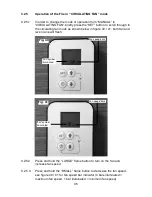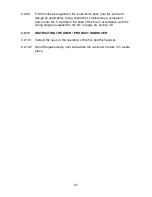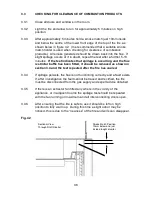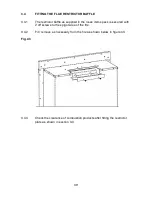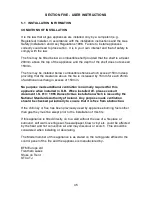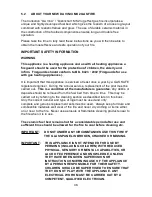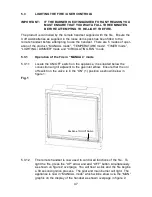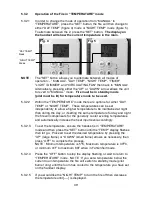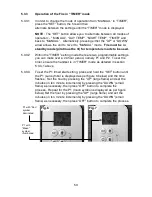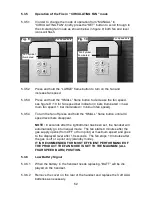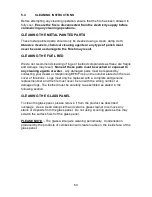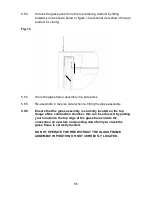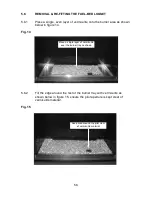
5.3.2
Operation of the Fire in “TEMPERATURE” mode
5.3.2.1
In order to change the mode of operation from “MANUAL” to
“TEMPERATURE”, press the “SET” button, the fire will then change to
either “DAY TEMP” (figure 4) mode or “NIGHT TEMP” mode (figure 5).
To alternate between the 2, press the “SET” button.
The display on
the handset will show the current temperature in the room.
NOTE
: The “SET” button allows you to alternate between all modes of
operation :- “ MANUAL”, “DAY TEMP”, “NIGHT TEMP”, “TIMER”,
“LIGHT / DIMMER” and “CIRCULATING FAN” then back to “MANUAL”.
Alternatively, pressing either the “UP” or “DOWN” arrow allows the unit
to revert to “MANUAL” mode.
Fire must be in standby mode
(pilot must be lit) for temperature mode to be used.
5.3.2.2
Within the “TEMPERATURE” mode there are options for either “DAY
TEMP” or “NIGHT TEMP”. These temperatures can be set
independently to allow a higher temperature to be maintained at night
than during the day, or if setting the same temperature for day and night
the fire will compensate for the generally cooler evening temperatures
and automatically increase the heat input level accordingly.
5.3.2.3
To set the temperature, ensure the handset is in “TEMPERATURE”
mode and then press the “SET” button until the “TEMP” display flashes
then let go. Proceed to set the desired temperature by pressing the
“UP” (large flame) or “DOWN” (small flame) arrows as necessary, then
press “OFF” to complete the process.
NOTE : Minimum temperature is 5oC, Maximum temperature is 30oC,
or minimum 41F to maximum 86F when in Fahrenheit mode.
5.3.2.4
Press the “OFF” button to stop the display flashing or wait to return to
“TEMPERATURE” mode. NOTE : If you set a temperature below the
current room temperature the fire will switch to standby mode (pilot
burner only) until the room has cooled to the temperature you have set
on the handset display.
5.3.2.5
If you would like the “NIGHT TEMP” to turn the fire off then decrease
the temperature until [----] is displayed.
“DAY TEMP”
Mode
“NIGHT TEMP”
Mode
Fig. 4
Fig. 5
49

